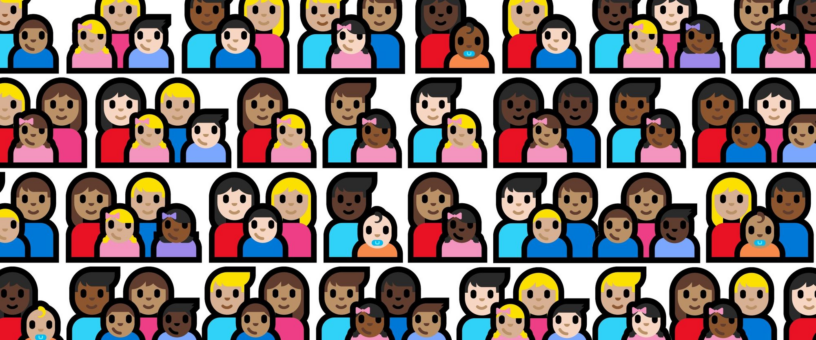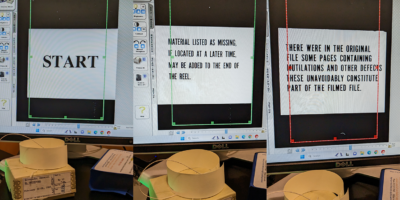by Pedro Cabello del Moral
Having children is the most exciting, transformative, rewarding experience that I have gone through. It is also a draining, confusing, and, oftentimes, lonely journey. Many of us, graduate students, combine teaching and parenting (on top of researching for our own dissertations/master’s thesis). From my chronically sleep-deprived self I assure you that those are tough months (or years) that are only partially alleviated by the parental leave and parental accommodation benefits that our contract provides . Is there a way to happily reconcile these two intense giving-yourself-to-others activities? This blogpost is not necessarily a response to that question, but a reflection that echoes rich (and often desperate) conversations that I have had with other parent-educators at CUNY throughout these years. Conversing with others in similar situations has made me appreciate more and more the beautiful interconnectivity of parenting and teaching.
SEEING THE INVISIBLE
One reality that we face is that parenting in academia, especially in the first stages of an academic career, is rather invisible. Like other kinds of emotional/reproductive labor, it has been effectively invisibilized by the rigid conditions in which we perform our paid jobs. In front of those unsympathetic eyes, we show ourselves only in our academic guises and not as grad student-parents, because we don’t want to be seen as less capable of fulfilling our duties, having more restricted schedules or a different order of priorities. This regressive and repressive dynamic is doubly apparent for women. It is commonplace that while fathers receive praise for everyday parenting tasks, mothers are undervalued and criticized over the same behaviors. Despite all of the institutional discouragement, being pregnant and bringing up kids is a reality that abounds among graduate students at CUNY.
The Teaching and Learning Center is a family-friendly space within The Graduate Center. Several TLC Fellows have had children born during their time here, and many fellows and staff are also proud and unapologetic parents. TLC folks have offered beautiful insights on how those two aspects of our lives inform each other: being pregnant while being an adjunct instructor, teaching and mothering (“a pedagogy of parenting”), the comparable stress of “non-stress” test and student assessment, and accommodating the needs of student-parents in our classrooms. In the spring semester of 2023, in the TLC there was a large group of folks who were parents or were considering having children. We decided to start a series of conversations about teaching and parenting internally, and later to reach out to other graduate students undergoing the same experience. One of the first initiatives that stemmed from that interest was organizing a lab to share our feelings, perspectives, and resources. We thought that creating a space for building community in the long term was one of the best ways we could offer support. In our outreach blurb we emphasized care as the starting point for parents and educators alike:
As graduate students, our inexperience and general fears sit on top of other anxieties related to work, finances, and immigration status. For this TLC talk, we invite a conversation that takes an extended perspective on parenting and caring. We will delve into our roles as parents/caregivers and teachers, the question of affective labor, language ideologies, and methods and strategies that stem from our daily experiences bringing up children. We hope to fold diverse approaches of interests for the GC community at large into our discussion as it brings together those who care for teaching and teach with care.
The language we used in our call was influenced by bell hooks, to whom we said our goodbyes exactly two years ago. hooks has profoundly inspired us in our non-conformist practices as childrearers and educators. One of the main lessons of her books on pedagogy, feminism, and love is that for both teaching and parenting to be experienced as liberation, it is essential to create community.
EXPERIENCES THAT SPEAK TO EACH OTHER
It came as no surprise that the initial interventions during our lab pointed to the need for community and institutional support within CUNY. We tried to enact that support by providing information about leaves of absence and childcare options, and resources such as the recently created Graduate Parents CUNY WhatsApp group and the Student-Parent chartered organization. To cultivate our long-term connection, we also created a shared document and people wrote encouraging messages stressing the beauty of both areas of our lives. These were some of our reflections:
Each experience is unique and part of the challenge is to find our own ways to make it work (and accept that we’ll get there through failing).
… by witnessing the learning, we remember that that was once us too. amazing too what they already know! how did they learn that? bring back the wonder, and the spark. this is incredible… this is human. what is important to teach and learn?
Every child learns and develops at different times and connects to the world in different ways, and that isn’t limited to early childhood, this need for varied ways of learning continues throughout education.
I’ve also become much more aware that people learn in different ways, and whereas that may have frustrated me early on in my teaching career, it now excites me and leaves me in awe.
Yes, we concurred that parenting has renewed our relationship to teaching. It has led us to be more patient, accepting, and flexible. As we said in our comments, we have learned from interacting with our kids the value of offering respectful accompaniment, to accept failure as part of the process, to provide multiple paths for learning, and to not demand immediate comprehension.
The things that my kids have taught me are uncountable. Every day they surprise me with their kindness, generosity, spontaneity, and curiosity. I can see that everything feels intense in their little minds. Their fears and anxieties are as big as their joys. They get triggered when I read books that feature wolves and monsters. Sometimes, my son asks me to hide the books that he is afraid of. At the zoo, he requests to hold my hand when we approach the fierce wolves, pumas, or coyotes in the flesh. For sure, one of the ways parenting has informed my pedagogy is that I now spend more time making sure the classroom is a safe and respectful environment and that students feel secure. In me, there is a primal feeling of being responsible for every single person in the classroom. I check in regularly and make sure everybody is doing okay.
At home, I try to get to consensus with my kids about our duties and plans for the day. I know how much reassurance they derive from routines, from feeling like they know what comes next. In my classes, even before having children, I was already fostering collaboration in group projects and inviting students to co-create the course content. However, coming to terms with the fact that things do not often go as planned has been a big lesson I owe to my children (especially to my young and tenacious daughter). Consequently, as an educator, I am less worried about productivity in the classroom and more at ease at spending time getting to know each other and creating our own habits and routines.
BUILDING SOLIDARITY IN OUR CLASSROOMS
In almost every class I have taught at CUNY I have encountered other student-parents. Knowing that there are people around with similar experiences of caretaking can feel meaningful and liberating for our students in the same way that it is for us. In this spirit, I always share in my classes that I am a parent, and I ask for the same kind of understanding that I offer to them in turn. I started that practice when my son was still in utero, and it definitely helped me open a channel of communication with the two student-parents taking my courses that semester. I remember that I allowed one overworked and overtired parent to take an exam at his own pace during my office hours. Similarly, I gave several extensions to the weekly assignments and the final paper to a student who was undergoing a high-risk pregnancy (with twins).
In both cases, there was no need for explanations or excuses. I just knew they needed that flexibility, and they knew I was going to be receptive to their requests. I saw how this solidarity was reciprocated. When my son was in the NICU for two weeks after being born with congenital pneumonia, my anxiety about coming to class and not being with him was assuaged by my students’ empathetic faces and comforting smiles. In the two sessions I taught coming directly from the hospital, they held the space for me to express my emotions and they were understanding of my noticeably disorganized lesson plans. The students helped me when I was out of my mind, and they kept the classroom afloat by doing wonderful presentations and taking charge of the conversation. I believe that every time I share experiences of parenting it benefits the whole class. We become a tighter teaching community in which the need for care can be explicitly addressed.
“At its best, teaching is a caring profession,” reminds bell hooks (2003, 86). Care presents learning opportunities that can be more transformative than concepts, facts, or data. I witness this principle every day at school drop off and pick up times when I see my kids interacting with their peers and their teachers in their little classrooms. They care for learning because they learn while caring. Why should this pedagogy of care be limited to early childhood education? The caring rituals that we integrate into our classes show our students that they are fundamentally good people, capable of doing well in life. That we believe in them! That seems to me one of the most transgressive, empowering messages that we can transmit.
References
hooks, bell. Teaching Community: A Pedagogy of Hope. Routledge, 2003.










Leave a Reply